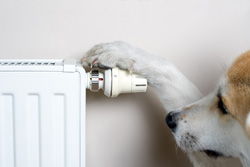Automatic temperature regulation without energy input
Heating and cooling homes and businesses typically requires electricity, in most cases provided by burning of fossil fuels. The same is true for refrigeration and cold storage of foods. A class of materials able to absorb heat when temperature rises and release it when temperature falls (so-called phase change materials, PCMs) may be the perfect way to maintain a constant desired temperature based simply on the heat absorption properties of the materials chosen with no external inputs or controls. Although applications are virtually limitless, commercial exploitation has been minimal due to high production and encapsulation costs. In addition, mechanical strength testing of commercial microencapsulated PCM products has been lacking. To address these issues, European researchers initiated the ‘Thermal energy storage with phase change materials for energy efficiency of European building stock’ (Effibuildings) project with the goal of developing new production technology based on the use of waste products, innovative encapsulation methods and new testing techniques. Effibuildings have initiated research regarding PCM use in cold stores and industrial freezers as well as vacuum impregnation of PCM in porous natural products for use in building materials such as concrete and wood. In addition, computer modelling work was commenced to evaluate the use of PCM in regulating water temperature in open-air swimming pools. Two new testing systems were constructed to evaluate the thermal performance of the composite materials. Continuing efforts in this field of enquiry should have an important impact on the commercialisation of PCM-based components for temperature regulation in a wide variety of applications.



